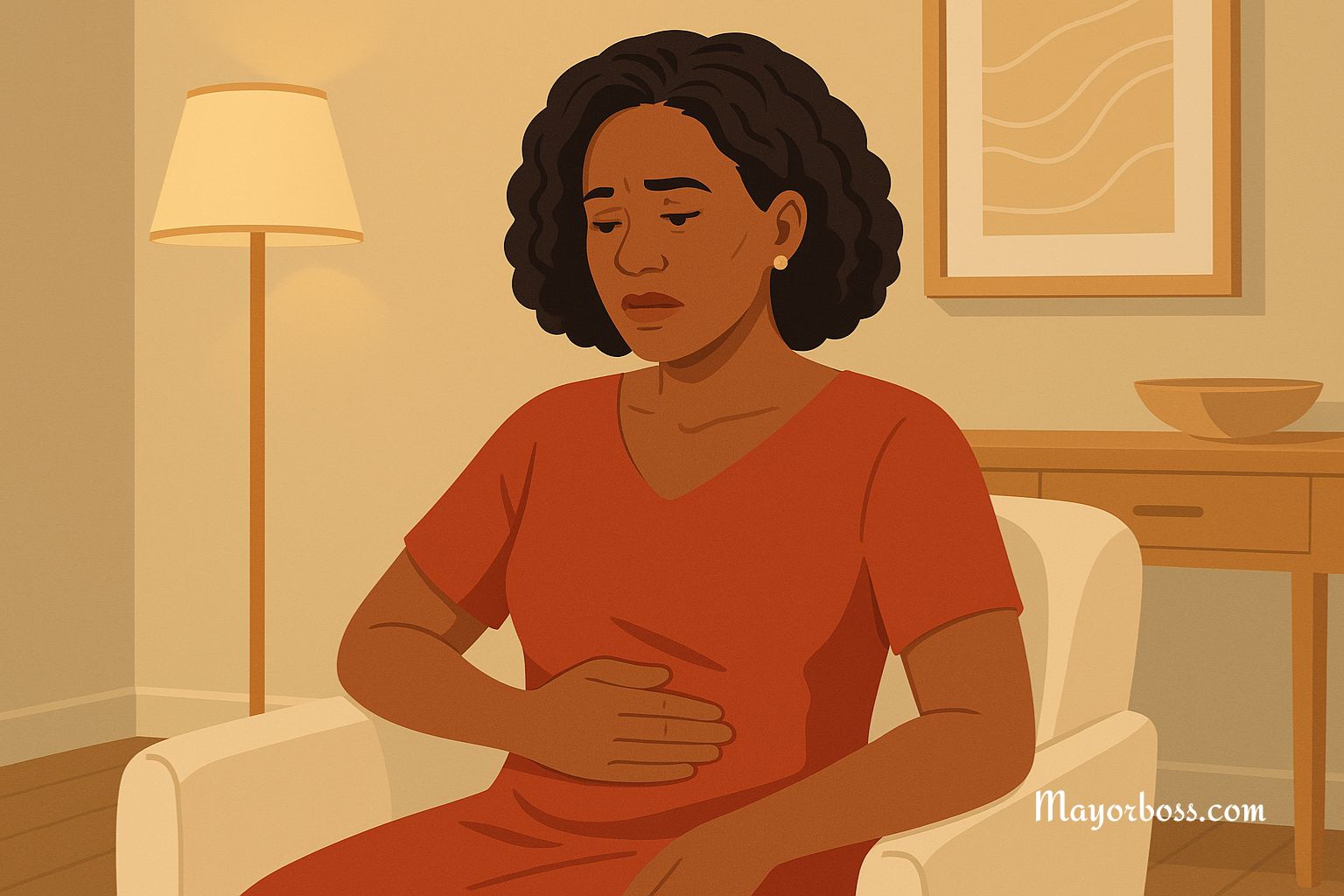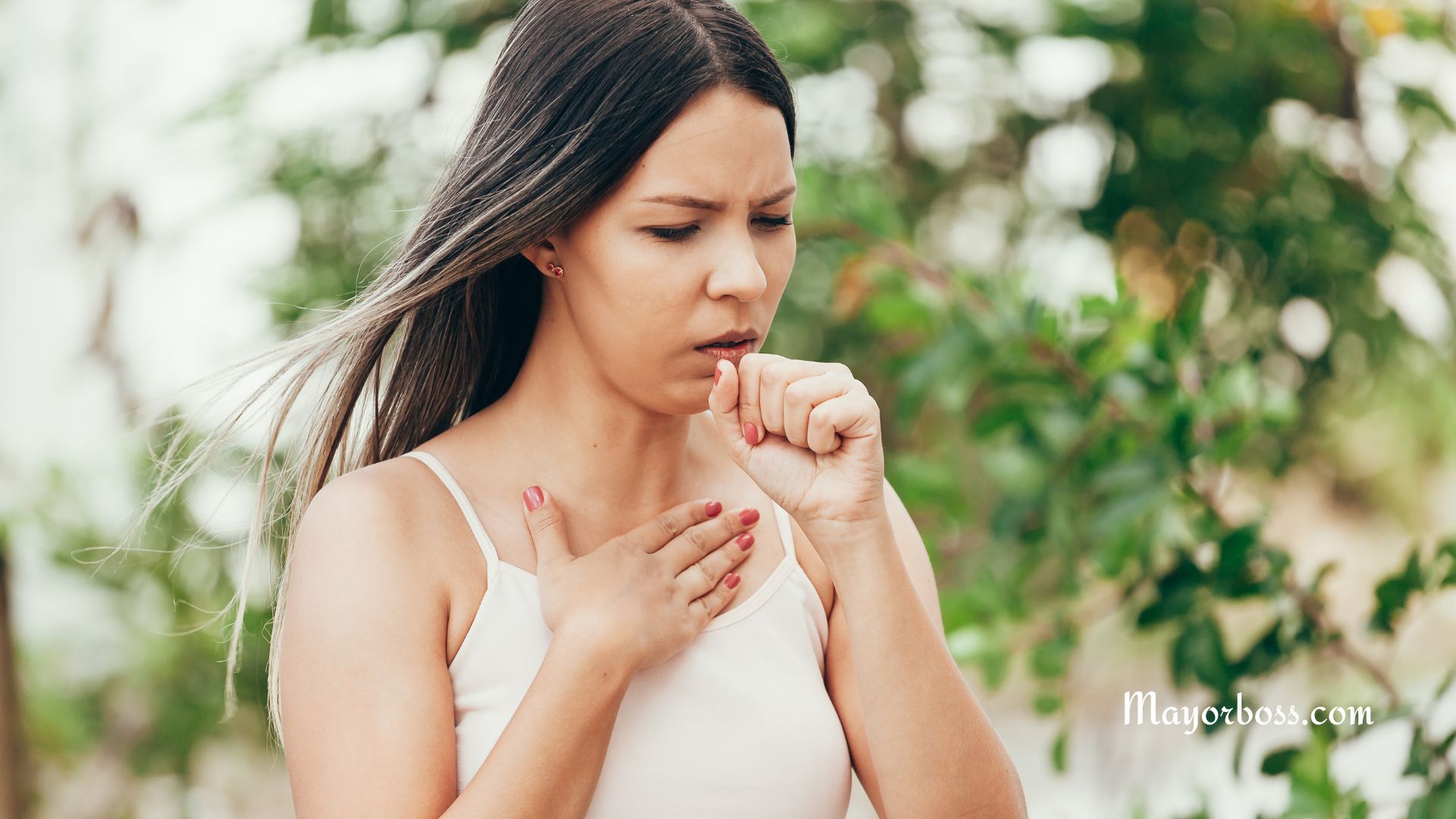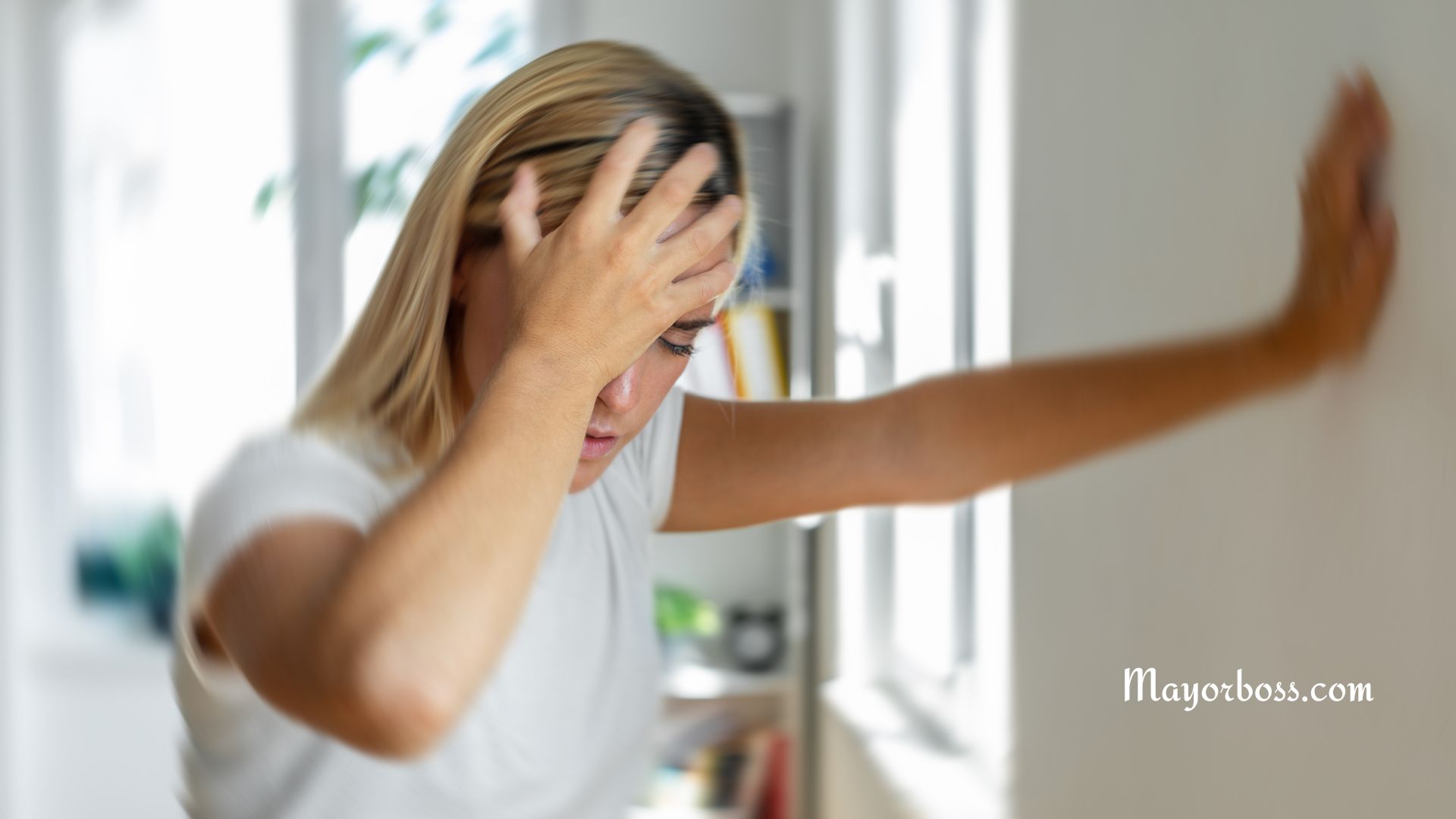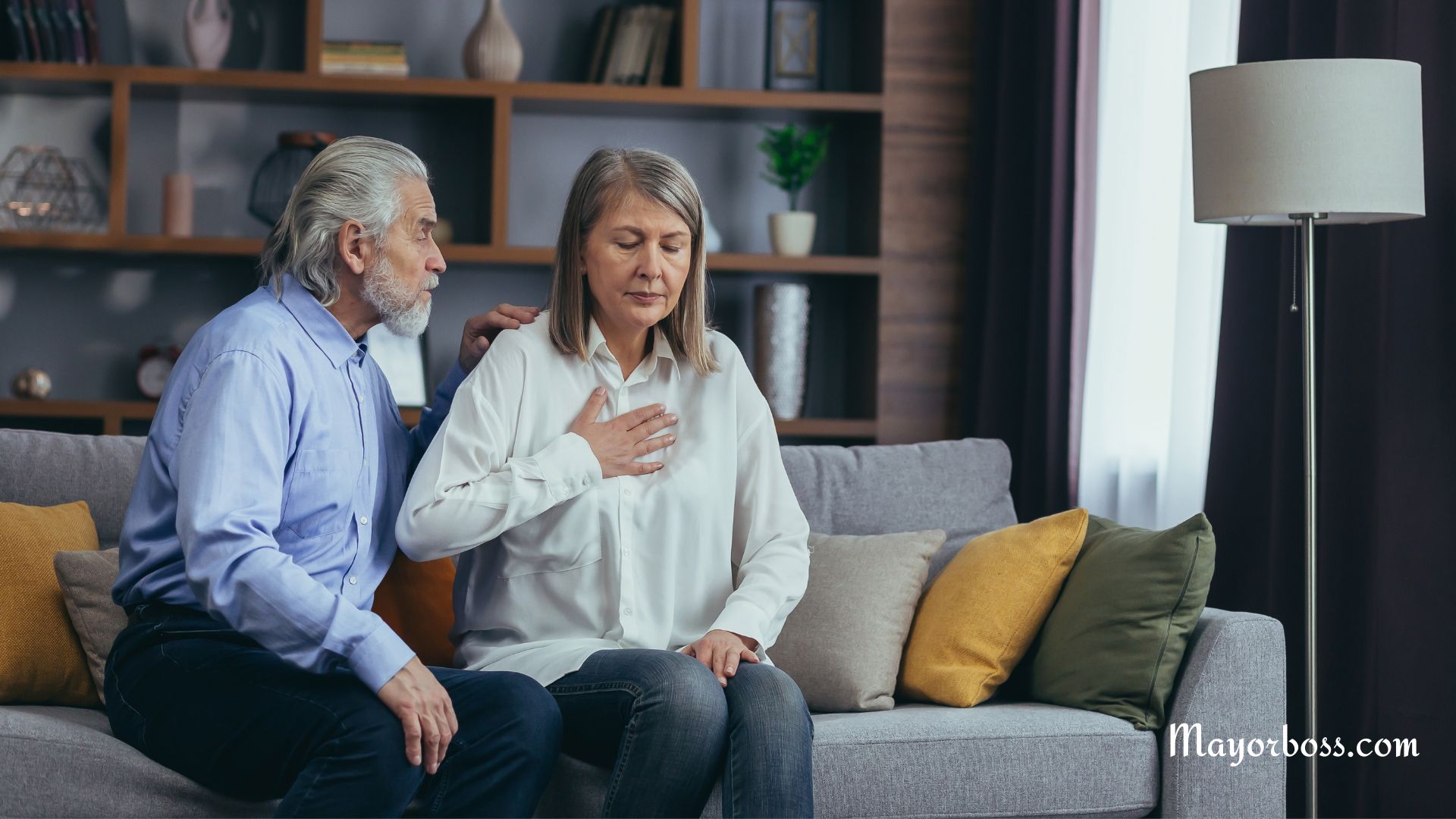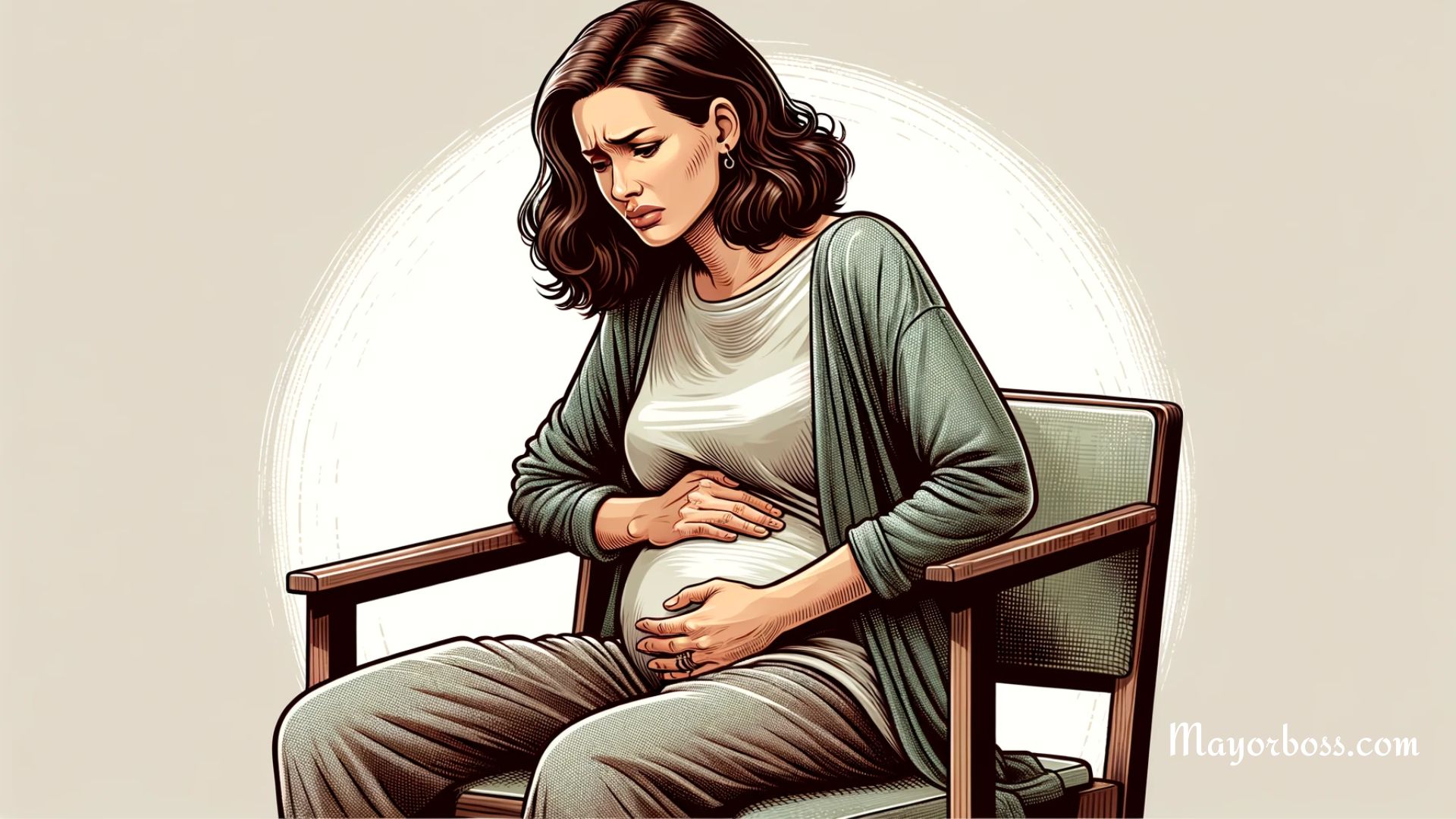Warning Signs of Inflammatory Bowel Disease
Inflammatory bowel disease (IBD) includes Crohn’s disease and ulcerative colitis, two chronic conditions that cause inflammation in the digestive tract. Early warning signs often mimic other digestive issues, but ignoring them can lead to serious complications.
Here are some of the pivotal warning signs that could point to IBD.
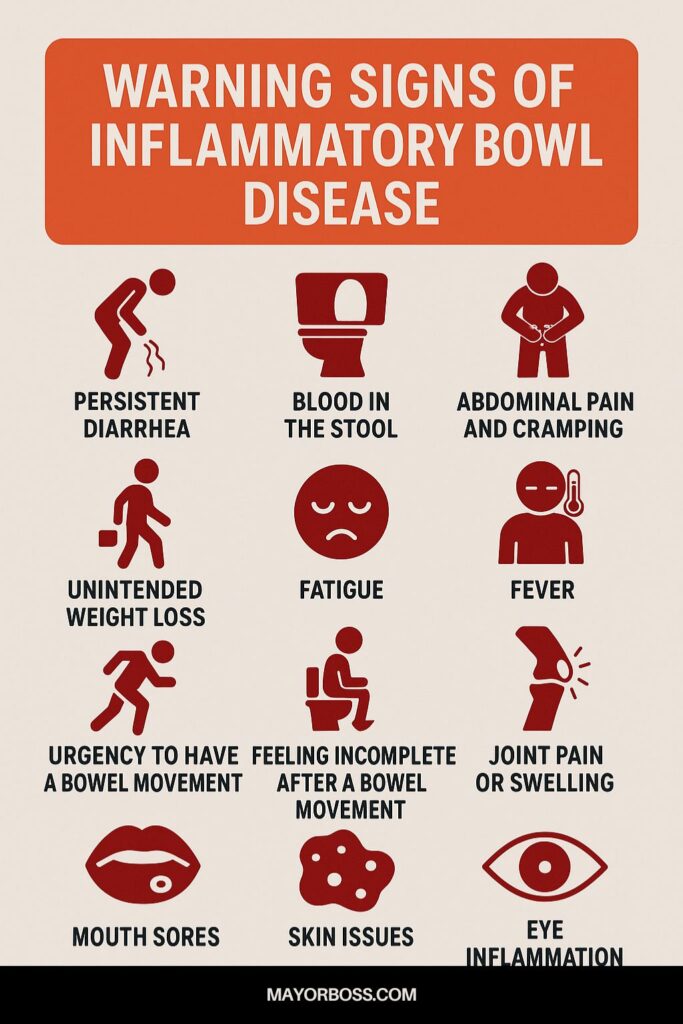
1. Persistent Diarrhea
One of the most common early symptoms of IBD is chronic diarrhea. This isn’t occasional loose stool from a meal that didn’t sit well. Instead, it’s frequent, urgent, and ongoing. In ulcerative colitis, diarrhea may contain mucus or blood. In Crohn’s disease, it might come and go, but it often returns without a clear reason.
2. Blood in the Stool
Seeing blood in your stool is never normal. It could be bright red, maroon, or even black and tarry. In IBD, this usually results from bleeding ulcers in the lining of the intestine. The bleeding may be visible or only found during a stool test. Either way, it needs medical attention.
3. Abdominal Pain and Cramping
IBD often causes recurring pain or cramping, especially after eating. This pain may be sharp or dull and is usually caused by inflammation or obstruction. With Crohn’s disease, pain often affects the lower right abdomen. In ulcerative colitis, pain tends to be on the left side.
4. Unintended Weight Loss
Losing weight without trying is a red flag. In IBD, weight loss happens because the inflammation affects how your body absorbs nutrients. In addition, loss of appetite, frequent diarrhea, and food avoidance because of pain all contribute.
5. Fatigue
People with IBD often feel tired all the time—even after a full night’s sleep. Chronic inflammation, poor nutrient absorption, anemia from blood loss, and the body’s constant immune response can leave you drained.
6. Fever
A low-grade fever, especially if it occurs along with digestive symptoms, may indicate inflammation in the bowel. While fevers are more common in Crohn’s disease, they can occur in both types of IBD.
7. Urgency to Have a Bowel Movement
You might suddenly feel an intense urge to use the bathroom, sometimes with little warning. This urgency can be stressful and embarrassing. Some people may even feel they can’t hold it long enough to reach the toilet in time.
8. Feeling Incomplete After a Bowel Movement
After using the bathroom, some people with IBD still feel like they haven’t fully emptied their bowels. This feeling, called tenesmus, is common in ulcerative colitis and can be both uncomfortable and frustrating.
9. Joint Pain or Swelling
IBD is not just a digestive disease—it can affect other parts of the body. Many people develop inflammation in the joints, leading to pain, stiffness, or swelling. These symptoms can occur even during times when digestive symptoms are mild.
10. Mouth Sores
Painful ulcers or sores in the mouth can show up, especially during IBD flare-ups. These are not your typical canker sores. They often occur when inflammation spreads beyond the intestines.
11. Skin Issues
Some individuals notice painful red bumps, often on the legs, known as erythema nodosum. Others may develop rashes or ulcers. These skin conditions are linked to immune system activity triggered by IBD.
12. Eye Inflammation
IBD can cause inflammation in the eyes, leading to redness, pain, or blurred vision. If not treated, it may threaten your sight. This symptom needs urgent medical attention.
When to See a Doctor
If you experience any combination of the symptoms above—especially ongoing diarrhea, blood in the stool, weight loss, and fatigue—it’s time to see a doctor. These signs can point to IBD, but they can also overlap with other conditions like infections, irritable bowel syndrome (IBS), or even colon cancer. A proper diagnosis often involves blood tests, stool analysis, imaging studies, and a colonoscopy.
FAQs
1. Is IBD the same as IBS?
No. IBS (irritable bowel syndrome) does not involve inflammation or damage to the digestive tract. IBD includes serious conditions like Crohn’s disease and ulcerative colitis that cause visible inflammation.
2. Can stress cause IBD?
Stress does not cause IBD, but it can trigger flare-ups in people who already have it. Managing stress is part of living well with IBD.
3. Is there a cure for IBD?
There is no cure, but with proper treatment—including medication, diet changes, and sometimes surgery—many people live full, active lives.
4. What foods should I avoid with IBD?
Common triggers include spicy foods, high-fiber foods during flare-ups, dairy, and fatty meals. Every person is different, so it’s important to work with a healthcare provider or dietitian.
5. Can children get IBD?
Yes. IBD can begin at any age, including childhood. Early signs in children may include growth delays, poor appetite, and abdominal pain.


